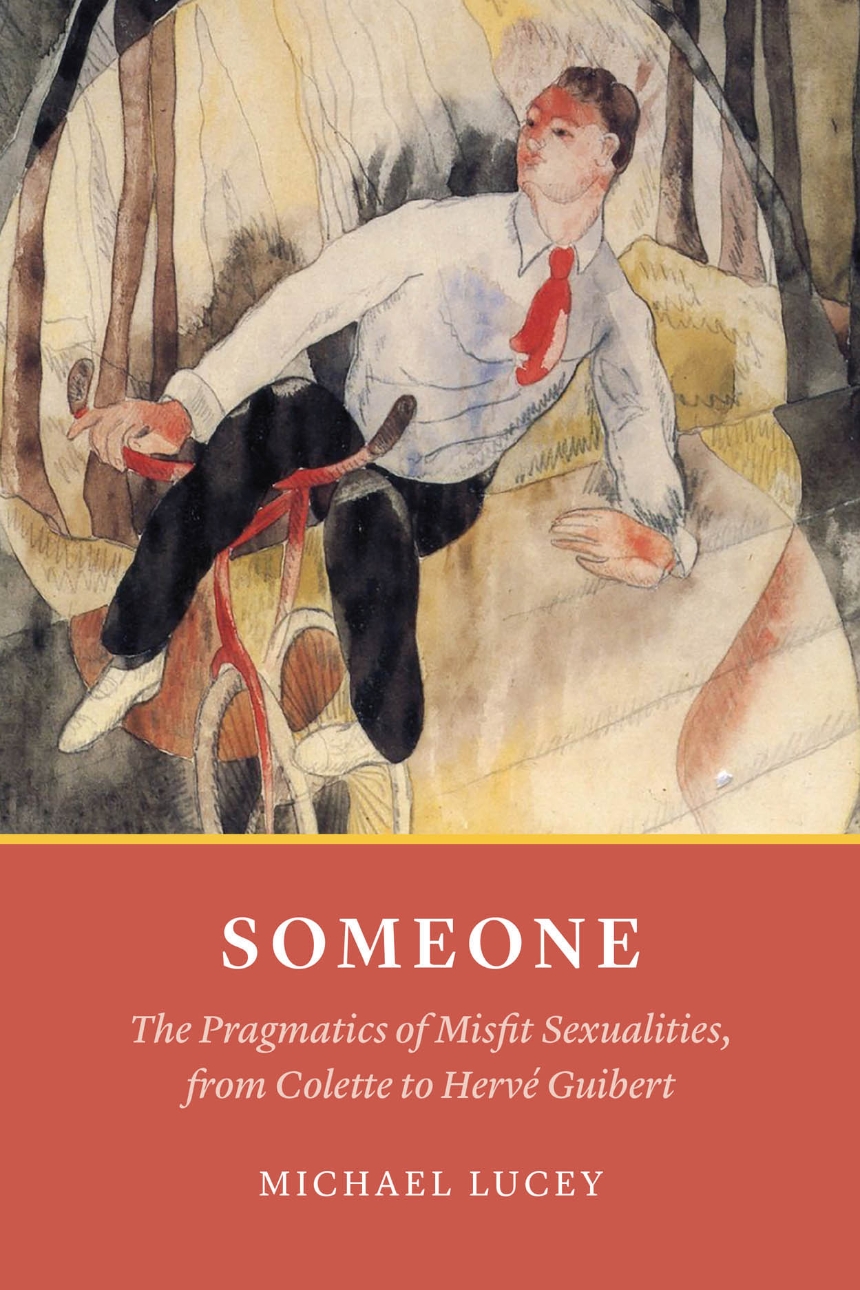Someone
The Pragmatics of Misfit Sexualities, from Colette to Hervé Guibert
9780226606217
9780226606187
9780226606354
Someone
The Pragmatics of Misfit Sexualities, from Colette to Hervé Guibert
Imagine trying to tell someone something about yourself and your desires for which there are no words. What if the mere attempt at expression was bound to misfire, to efface the truth of that ineluctable something?
In Someone, Michael Lucey considers characters from twentieth-century French literary texts whose sexual forms prove difficult to conceptualize or represent. The characters expressing these “misfit” sexualities gravitate towards same-sex encounters. Yet they differ in subtle but crucial ways from mainstream gay or lesbian identities—whether because of a discordance between gender identity and sexuality, practices specific to a certain place and time, or the fleetingness or non-exclusivity of desire. Investigating works by Simone de Beauvoir, Colette, Jean Genet, and others, Lucey probes both the range of same-sex sexual forms in twentieth-century France and the innovative literary language authors have used to explore these evanescent forms.
As a portrait of fragile sexualities that involve awkward and delicate maneuvers and modes of articulation, Someone reveals just how messy the ways in which we experience and perceive sexuality remain, even to ourselves.
In Someone, Michael Lucey considers characters from twentieth-century French literary texts whose sexual forms prove difficult to conceptualize or represent. The characters expressing these “misfit” sexualities gravitate towards same-sex encounters. Yet they differ in subtle but crucial ways from mainstream gay or lesbian identities—whether because of a discordance between gender identity and sexuality, practices specific to a certain place and time, or the fleetingness or non-exclusivity of desire. Investigating works by Simone de Beauvoir, Colette, Jean Genet, and others, Lucey probes both the range of same-sex sexual forms in twentieth-century France and the innovative literary language authors have used to explore these evanescent forms.
As a portrait of fragile sexualities that involve awkward and delicate maneuvers and modes of articulation, Someone reveals just how messy the ways in which we experience and perceive sexuality remain, even to ourselves.
344 pages | 6 x 9 | © 2019
History: History of Ideas
Literature and Literary Criticism: General Criticism and Critical Theory
Psychology: Personality
Reviews
Table of Contents
Introduction: Roadmap to Someone
1 Colette and (Un)intelligibility
2 Sexuality and the Literary Field
3 Metapragmatics, Sexuality, and the Novel: Reading Jean Genet’s Querelle
4 Simone de Beauvoir and Sexuality in the Third Person
5 The Contexts of Marguerite Duras’s Homophobia
6 Multivariable Social Acrobatics and Misfit Counterpublics: Violette Leduc and Hervé Guibert
7 The Talk of the Town: Sexuality in Three Pinget Novels
Acknowledgments
1 Colette and (Un)intelligibility
2 Sexuality and the Literary Field
3 Metapragmatics, Sexuality, and the Novel: Reading Jean Genet’s Querelle
4 Simone de Beauvoir and Sexuality in the Third Person
5 The Contexts of Marguerite Duras’s Homophobia
6 Multivariable Social Acrobatics and Misfit Counterpublics: Violette Leduc and Hervé Guibert
7 The Talk of the Town: Sexuality in Three Pinget Novels
Acknowledgments
